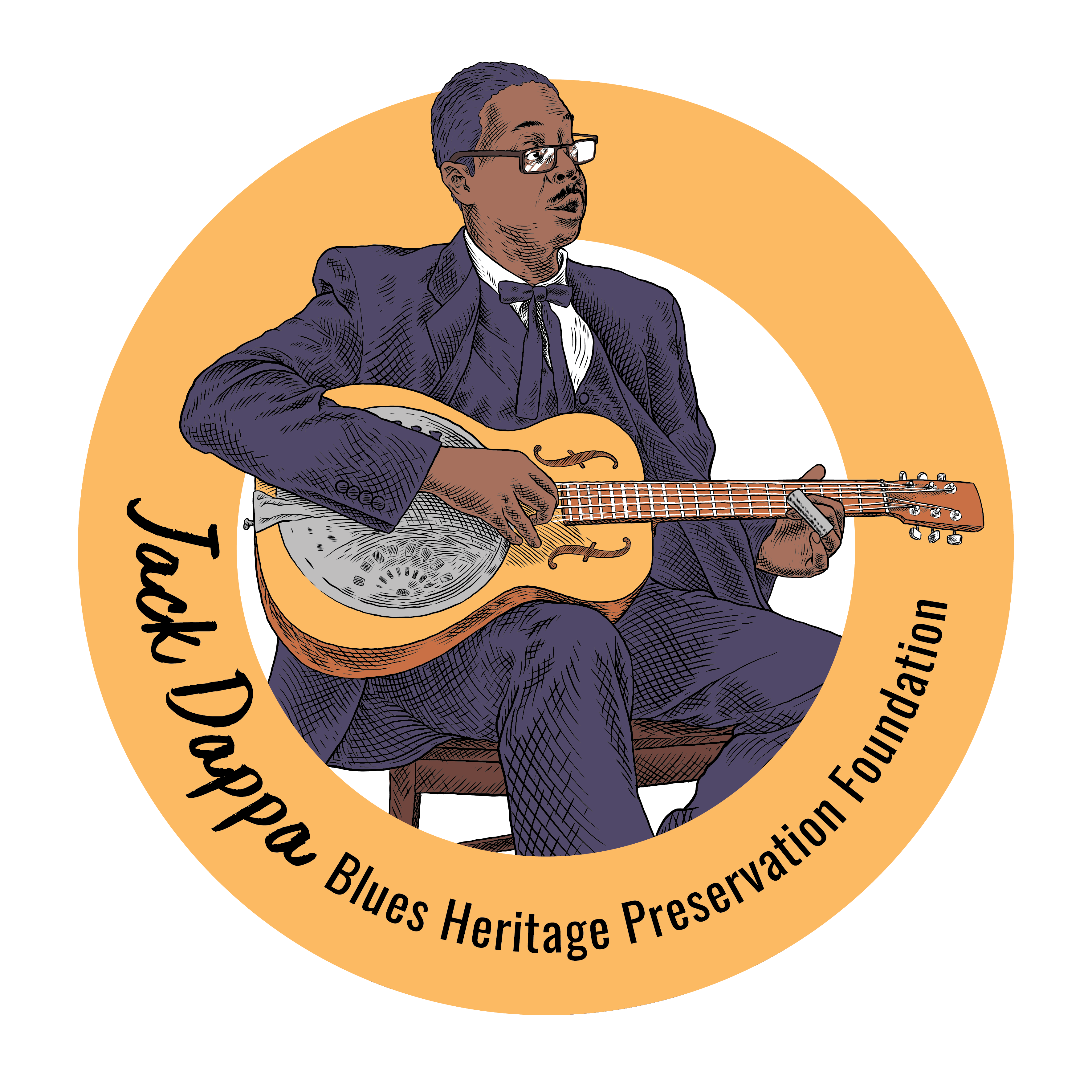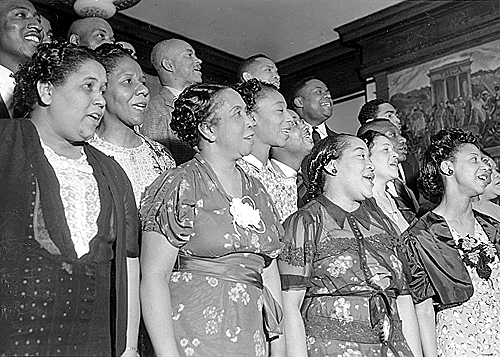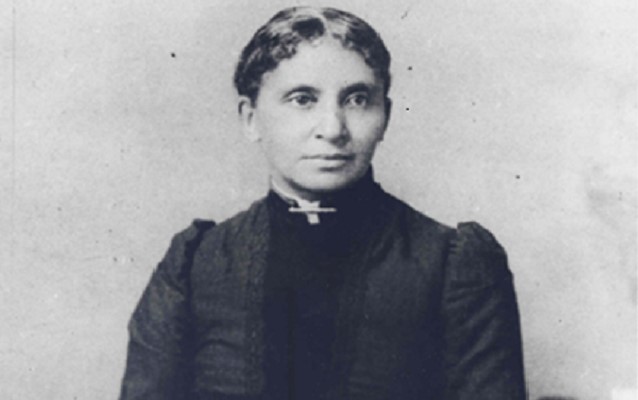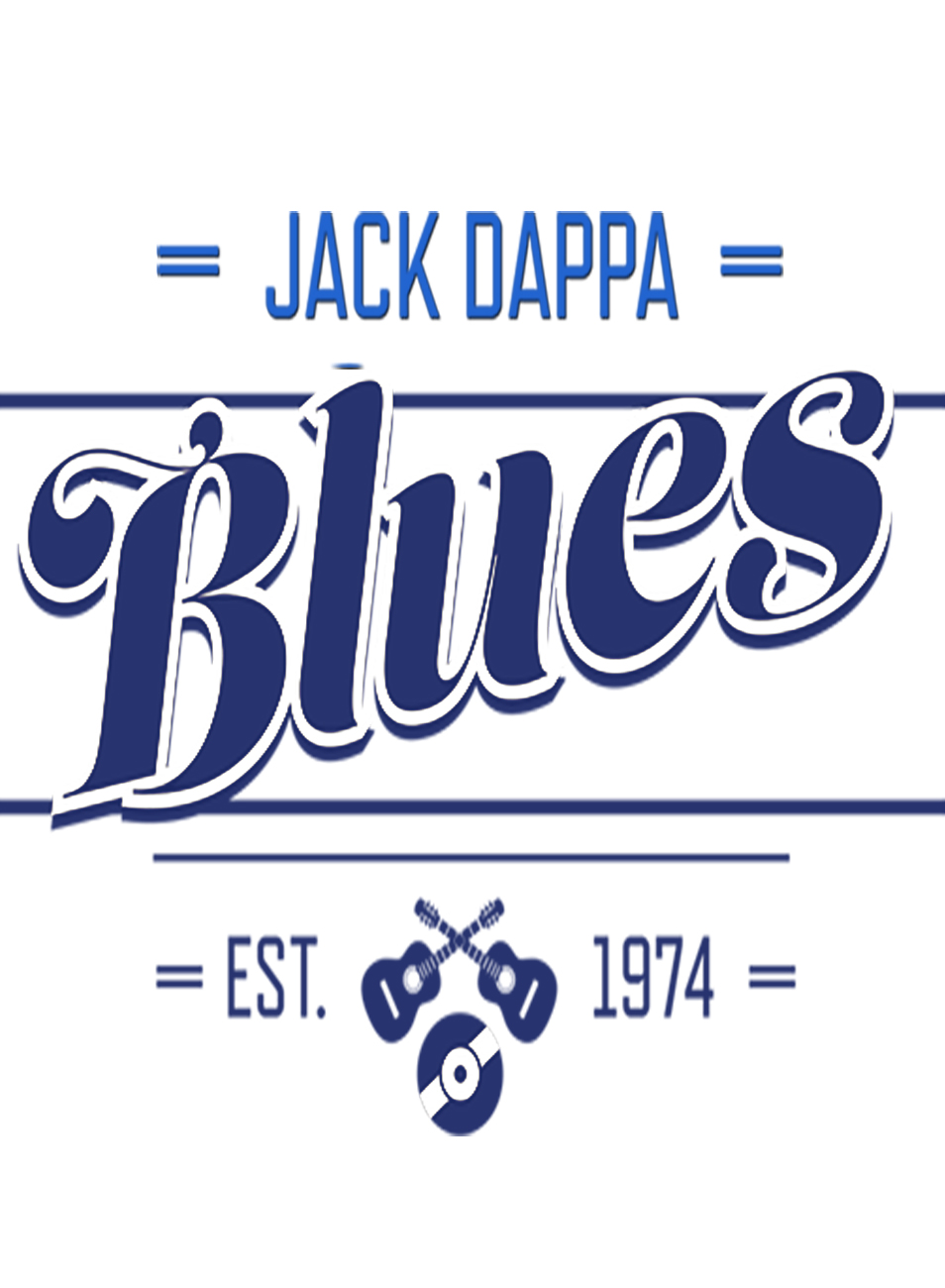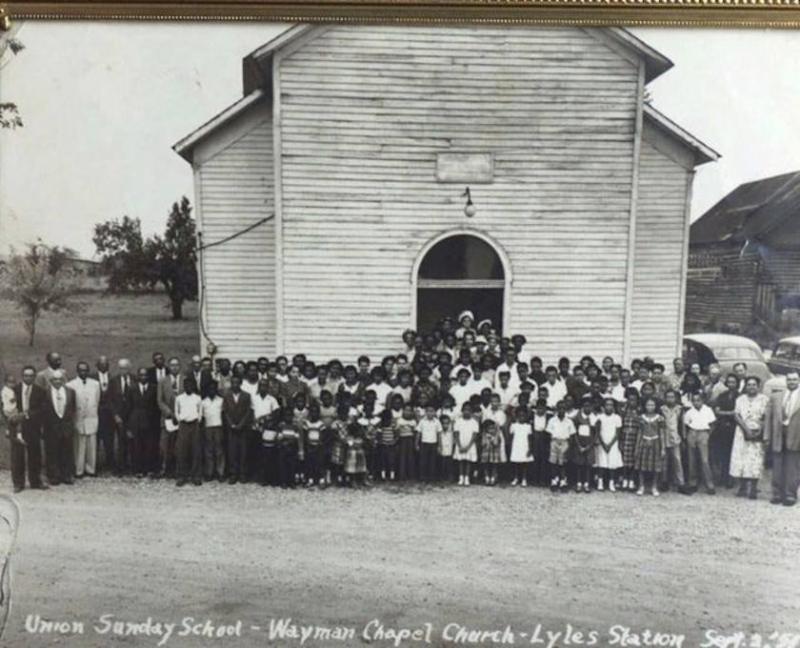Black Spirituals – America’s Folk Songs
By Lamont Jack Pearley
The Black Spirituals are the product of suffering, the hardships and despairs of those in bondage as they gave utterance through deep grievance in song. Said to be religious folksongs that were born during American slavery, Krehbiel states, “they were literally born and not composed”. As I stated in a previous article titled “African American Tribal Music – The Beginning”, like it’s descendant the Blues, the Black Spirituals are the product of the two continents Africa and North America. In them we find the roots of African traditions and culture, along with the experience of slave life in America. It’s also a direct reflection of ancient hebrew oppression, from where you would find in the bible versus that read, “sing songs of sorrow” and language such as “mourn” and “lament”.

Krehbiel then concludes that the Black Spirituals fulfill the requirement of not only being folks songs, but that they are The Only American Folk Songs – “the songs of the black slaves of the south are original and native products. They contain idioms which were transported hither from Africa, but as songs they are products of American Institutions”. Some Christian ministers, such as J. D. Long, whose 1857 book, Pictures of Slavery in Church and State, created a firestorm, and led to his facing disciplinary charges at the 1858 Philadelphia Conference session, shares his accounts that rural slaves used to stay after the regular worship services, in churches or in plantation “praise houses”, for singing and dancing. But, slaveholders did not allow dancing and playing drums, as usual in Africa. They also had meetings at secret places (“camp meetings”, “bush meetings”), because they needed to meet one another and share their joys, pains and hopes. In rural meetings, thousands of slaves were gathered and listened to itinerant preachers, and sang spirituals, for hours. Camp-meetings in the South are held almost exclusively by the Methodist churches. The primary design of these meetings was the glory of God and the salvation of souls.
To give more context to the idea that the Black Spirituals are born, making it folk songs, J.D. Long writes, “But by no class is a camp-meeting hailed with more unmixed delight than by the poor slaves…I have witnessed scenes at these meetings morally grand and sublime–scenes which can never be blotted from my memory. Camp-fires blazing in every direction with heart pine wood; the groans and the sobs of penitent sinners; the shout and the rapture of the new convert; the rejoicing of friends; the deep, melodious, organ-like music welling from a thousand African throats–all conspired to elevate the soul to Christ, “who sitteth at the right hand of the Father.”
To me, this description by J.D. Long describes what could be the most purest form of Negro Spirituals in the midst of worship, solidifying it as America’s original and most folk songs. Unlike Richard Wallaschek, whose racial motivation was quite evident in his statements such as, “black spirituals were mere imitations of European compositions which negroes have picked up and served with slight variations”, which was in his book “Primitive Music” in 1893. He received strong pushback from the legendary folklorist, historian and Black Spiritual composer John Wesley Work III, as well as other historic figures such as James Weldon Johnson, Alain Locke and Henry Krehbiel.
The titles Negro spiritual, Black spiritual, and African-American spiritual, jubilee, and African-American folk songs are all interchangeable when discussing the traditional expression. Spirituals provided inner comfort, allowed workers to complete daily tasks harmoniously, and they were also expression of spiritual devotion and a yearning for freedom from bondage. According to the the Library of Congress, the Black Spirituals constitutes if not the largest, the most significant form of American Folk Songs.
The irony of the cries of an enslaved and oppressed people to be the staple of folk songs in the land of their bondage speaks volumes. However, what speaks more than the land and power structure that finds a since of admiration for the songs created through chattel slavery are the African Americans who found freedom, education and the glimpse of assimilation that would begin to down play and place a black cloud over the thought and haunting sounds of the Black Spirituals.
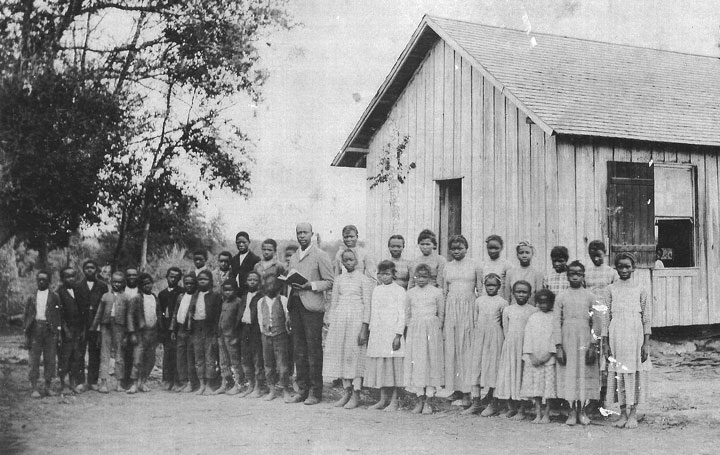
America’s Folk Songs where not necessarily appreciated by those it came from, and we see a glimpse of that in a quote from Fredrick Douglas a former slave who wrote, “I did not, when a slave, fully
understand the deep meaning of those rude and apparently incoherent songs. I was, myself, within the circle, so that I could then neither hear nor see as those without might see and hear. They breathed the prayer and complaint of souls overflowing with the bitterest anguish. They depressed my spirits and filled my heart with ineffable sadness…The remark in the olden time was not infrequently made, that slaves were the most contented and happy laborers in the world, and their dancing and singing were referred to in proof of this alleged fact; but it was a great mistake to suppose them happy because they sometimes made those joyful noises. The songs of the slaves represented their sorrows, rather than their joys. Like tears, they were a relief to aching hearts.”
This isn’t to say Douglas was anti-black spiritual. He literally speaks from the first hand experience that was a major catalyst of the songs. He also knew that the specific lyrics in some of these folk songs had encrypted messages.
The legendary Abolitionist also states in his book My Bondage and My Freedom (1855) of singing spirituals during his years in bondage: “A keen observer might have detected in our repeated singing of ‘O Canaan, sweet Canaan, I am bound for the land of Canaan,’ something more than a hope of reaching heaven. We meant to reach the North, and the North was our Canaan.” Songs and statements such as this, lead historians and researchers to the conclusion that Spirituals played two roles in the culture of African Americans. 1 – The protest song of freedom, and 2- the coded songs of maps and escape, both solidifying the Black Spirituals as being the epitome of Folk Songs.
Spirituals have played a significant role as vehicles for protest at intermittent points during the twentieth and early twenty-first centuries. During the Civil Rights Movement of the 1950s and 1960s, spirituals as well as Gospel songs supported the efforts of civil rights activists. Many of the “freedom songs” of the period, such as “Oh, Freedom!”
and “Eyes on the Prize,” were adapted from old spirituals. In Martin Luther Kings epic “I have a Dream Speech” , he quotes a lyric from a famous black spiritual.
Now the dictionary’s definition of “Folk Songs” is a song originating among the people of a country or area, passed by oral tradition from one singer or generation to the next, often existing several versions, and marked generally by simple, modal melody and stanzaic, narrative verse. If one takes time to listen to the Lomax collection of recording and interviews, or John Wesley Work, Eileen Southern and the first to embark on recording Black Spirituals, educator and abolitionist Charlotte Forten Gremke, you will see a long lineage of Folk Songs deriving from the black people of a country or area.
Today, you will also see that, whether it’s style, story, or even melody, it’s all been passed down through many generations. Visit any local Black Church, even your commercial mega church at times, partakes in the traditional praise of original Negro Spirituals. We can for the most part trace the Black Spirituals to at the least mid 1700’s. And I’m sure we can trace it to 1560. Though cultivated through the enslavement of African Americans, this was a traditional folk culture that was practiced prior to reaching these lands. So when you think of Folk Songs, Negro Spirituals should be number one on your lists, because it’s as American Folk Song as it gets. Black Spirituals are America’s Folk Songs!
